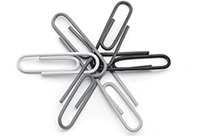
13
BE PRESENT
Showing Up Is Just the Start
The most precious gift we can offer others is our presence.
—THICH NHAT HANH
“He breaks down a brick wall with his mind.” That’s how my client was described by his peers. When I shared this feedback with the 32-year-old computer programmer, his response was, “I’m just doing my job.” It shocked Nick to learn that his participation on a project gave it instant credibility. We forget, or don’t even realize that those around us are often deeply impacted by our presence (or lack of it).
Showing up matters. Remote workers make their presence known by their contributions and have pre-arranged expectations for on-site participation. Let’s not confuse them with the person who should be at the office but then calls in at the last minute to join a meeting because they hit snooze on the alarm or didn’t want to tackle rush-hour traffic.
How many times have you been at a conference table when the colleague who isn’t in the room becomes the focus of attention? “Why didn’t they make the effort? Are we not important enough?” The team showed up but they’re not looking at each other; they’re talking to the speaker phone! If you’re expected to be the human in the room, don’t opt to be the voice in the box.
And certainly, avoid being that colleague who only appears at regularly scheduled meetings if they need something. If you are an invited lecturer, spend time with your audience. I have attended many conferences where the keynote speakers, the experts whom everyone wants to learn from and impress, are seen only on stage. That’s terribly disappointing to eager participants who plunked down a chunk of change with the hope of having an informal conversation with a famous influencer in their field.
I’m often asked to coach clients on “executive presence.” It’s a misconception that executive presence is about commanding a room. It’s not about you being the star. Power results from your ability to tune in to the needs of the people around you. It seems pretty obvious, but it’s worth stating: attending to others is impossible if you are not actually in the right place!
OK. You showed up. Now what? Here’s a chance to implement the suggestions we discussed in earlier chapters. Make eye contact, silence your internal chatter, listen deeply, and relax into the moment. Daniel Ludevig, a former dancer who teaches embodied leadership, reminds us that “Your body is not just a brain taxi, transporting it from one meeting to the next.” Whether you are entering a conference room, walking the hall, or grabbing a sandwich, you are demonstrating an approachability and interest through all of your nonverbal behaviors.
The more senior your position, the greater likelihood your every move is read and interpreted (often incorrectly) by those around you. Are you the boss, but lost in thought about your sister’s disdain for your current beau? Watch out. If you walk down the hall with a frown, the default for your team won’t be, “Oh, I see she has a sibling as exasperating as mine,” but more likely, “What did I do wrong? My manager seems really annoyed.”
It may seem unfair. “Do I always have to monitor myself and my expressions?” you may ask. You may elect not to care, but then don’t be surprised if you aren’t seen as approachable (or likable). Here’s the good news: When one person becomes fully present, it’s an almost irresistible force. The connection happens. If you, freed from distractions, sit with a colleague and actively pay attention with all your senses, if you convey that what’s happening between you at that moment is all that matters, then your presence can bring others in, inviting them to sit up, take notice, and take action.
THIS IS FOR YOU IF
• You want to be taken seriously.
• Information doesn’t readily come your way.
• Modesty is your mantra, and you forget how you affect others.
TAKE ACTION
![]() Manage your mood, facial expressions, and body language to send the right signals.
Manage your mood, facial expressions, and body language to send the right signals.
![]() Be intentional with your attention. Identify colleagues and constituents who need face time.
Be intentional with your attention. Identify colleagues and constituents who need face time.
![]() Consider taking handwritten notes in meetings so it’s clear you aren’t cheating and checking your emails on your electronic device.
Consider taking handwritten notes in meetings so it’s clear you aren’t cheating and checking your emails on your electronic device.
![]() Follow my colleague Max Metcalfe’s advice if you have a big personality: “manage your muchness.” Be careful not to overpower a room.
Follow my colleague Max Metcalfe’s advice if you have a big personality: “manage your muchness.” Be careful not to overpower a room.
![]() Assess your personal power meter. If you think you are a 7 on a scale of 1–10 of impact, you are more likely an 11.
Assess your personal power meter. If you think you are a 7 on a scale of 1–10 of impact, you are more likely an 11.
![]() Remember to show up when you are expected or when your surprise appearance would motivate and validate others.
Remember to show up when you are expected or when your surprise appearance would motivate and validate others.
KEEP IN MIND
• A Google Hangout or company hashtag does not replace in-person conversations.
• Uncontrollable noise generates stress; remove unnecessary email and text alerts. We all know you are popular. Assume something is coming into your inbox regularly. You don’t need a beep or a buzz to announce incoming messages.
